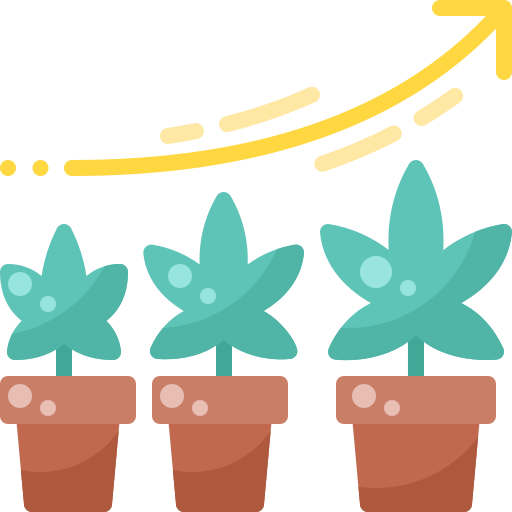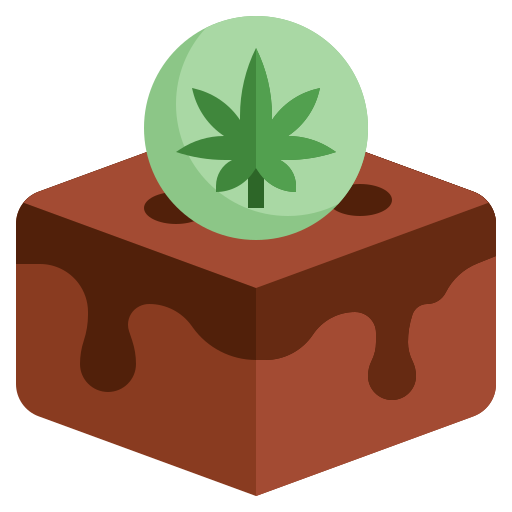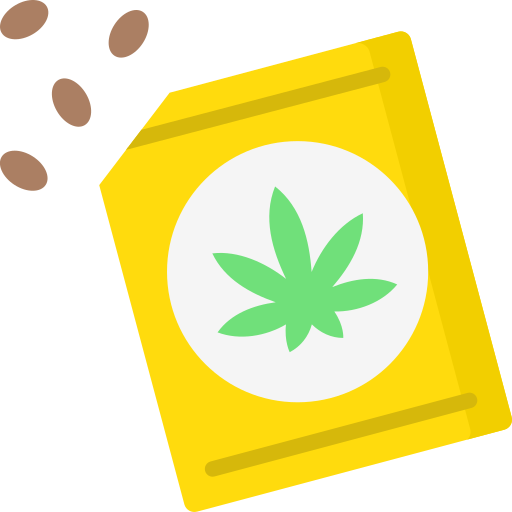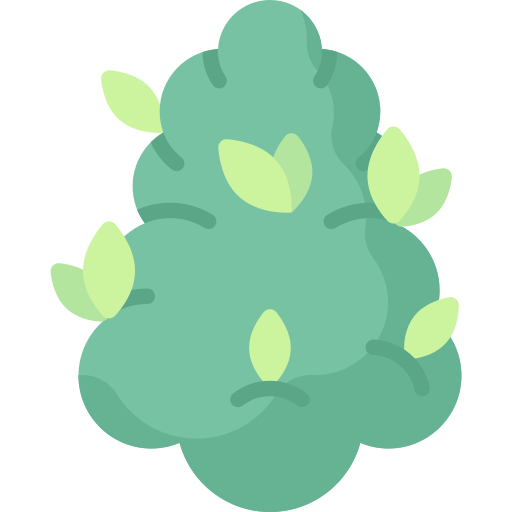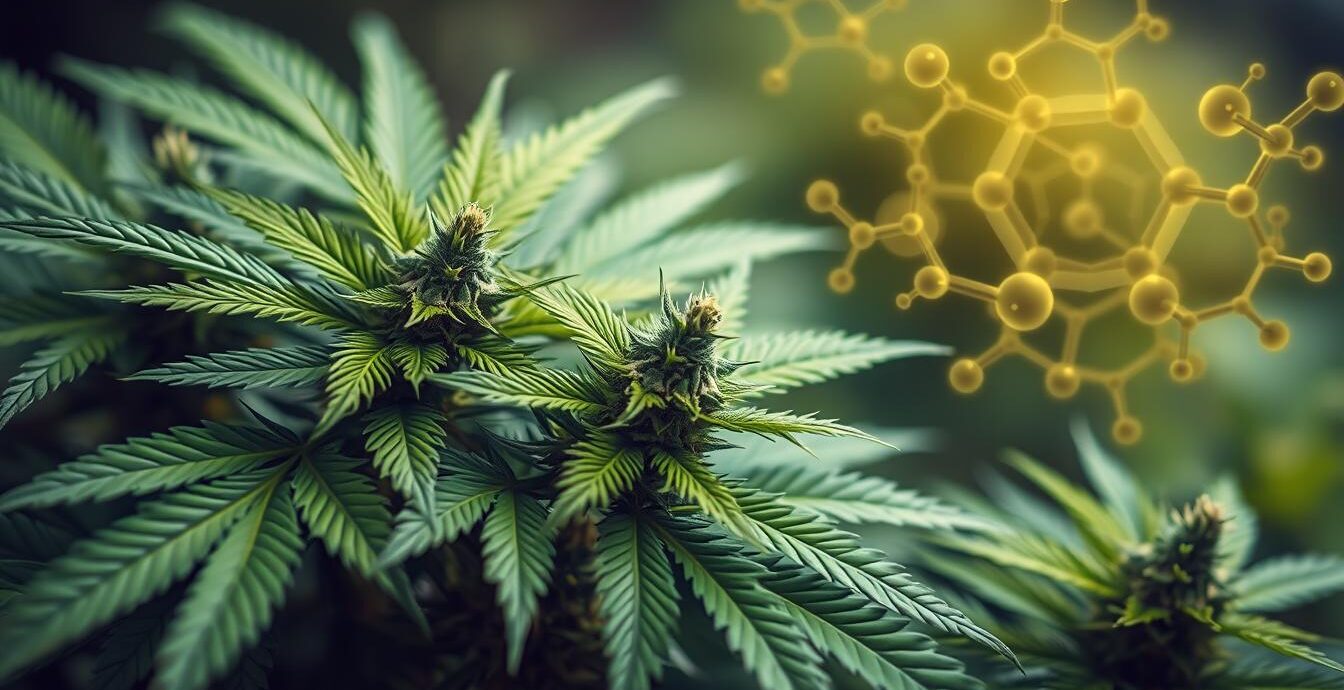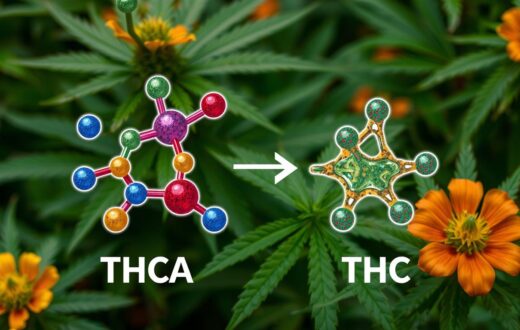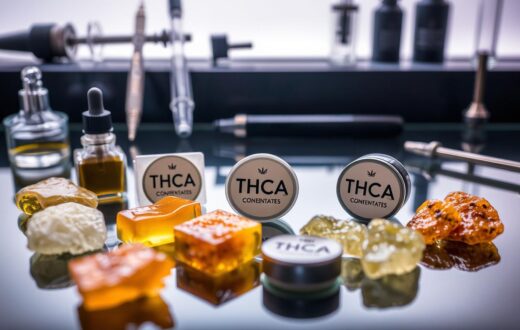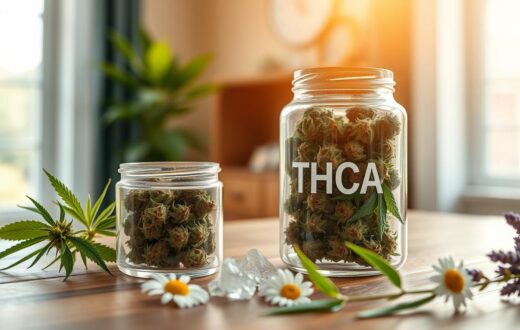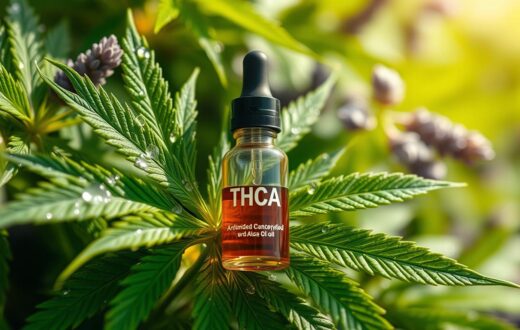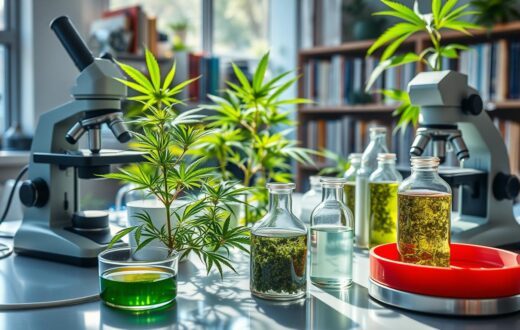Ever wondered why some cannabis products give you a buzz while others don’t? The secret lies in two tiny letters: A and D. THCA and CBD, two powerhouse compounds in the cannabis world, hold the key to unlocking a spectrum of effects. But what sets them apart?
Let’s dive into the fascinating world of cannabis tinctures and explore the unique properties of THCA and CBD. While both are non-psychoactive in their natural state, their paths diverge when heat enters the picture. THCA, found in raw cannabis, transforms into the well-known THC when heated, potentially causing that familiar “high.” On the flip side, CBD remains cool under pressure, never inducing intoxication.
Interestingly, these compounds interact with our bodies in distinct ways. THCA mainly buddies up with CB2 receptors, while CBD takes a more roundabout approach, influencing our endocannabinoid system indirectly. This difference explains why THCA tinctures and CBD products can offer varied effects.
As we unpack the world of weed tinctures, we’ll discover how these compounds shape the cannabis experience. From potential health benefits to legal status, THCA and CBD each bring something unique to the table. Ready to learn more? Let’s explore the key differences between these cannabis superstars!
Understanding the Basics of THCA and CBD
Cannabis plants are full of compounds called cannabinoids. Two well-known ones are THCA and CBD. Let’s dive into what they are and where they come from.
What is THCA?
THCA, or tetrahydrocannabinolic acid, is found in raw cannabis. It doesn’t make you high because it’s non-psychoactive. When you heat it, THCA turns into THC, which does make you feel high. Raw cannabis oil often has THCA in it.
What is CBD?
CBD, short for cannabidiol, is another non-psychoactive compound. It’s found in both hemp and marijuana plants. CBD is known for its health benefits without causing a high. You can find CBD in various forms, like hemp tinctures and cannabinoid tinctures.
The Origins of THCA and CBD
Both THCA and CBD start in the cannabis plant. They begin as CBGA, which then breaks down into THCA and CBDA. As the plant grows, these compounds develop. THCA is found in fresh cannabis, while CBD can be extracted from hemp or marijuana.
Understanding these basics helps you make informed choices about cannabis products. Whether you’re looking at raw cannabis oil or considering hemp tinctures, knowing the difference between THCA and CBD is key.
The Chemical Structure of THCA and CBD
THCA and CBD are key compounds in cannabis plants. Their unique structures lead to different effects on the body. Let’s explore how these cannabinoids work.
The Molecular Composition
THCA, or tetrahydrocannabinolic acid, is found in raw cannabis. It has a carboxylic acid group, making it non-psychoactive. CBD, or cannabidiol, has a different structure. This is why CBD doesn’t cause a “high” feeling.
When THCA is heated, it turns into THC. THC is the compound that produces psychoactive effects.
How They Interact with the Body
THCA and CBD interact with our bodies in different ways. THCA mainly works with CB2 receptors when it’s not heated. But once it becomes THC, it can bind to both CB1 and CB2 receptors.
CBD doesn’t directly bind to these receptors. Instead, it affects the body’s endocannabinoid system in other ways. These interactions lead to varied potential benefits.
Decarboxylated cannabis tinctures and marijuana tinctures often contain a mix of these compounds. The heating process in making these products can change THCA to THC. This is why some tinctures may have psychoactive effects while others don’t. Understanding these differences can help users choose the right product for their needs.
Legal Status of THCA and CBD in the United States
The laws about THCA and CBD in the U.S. are changing and complex. The 2018 Farm Bill made hemp products with less than 0.3% THC legal. But, each state has its own rules. This means the laws on cannabis tinctures, hemp tinctures, and THCA tinctures vary across the country.
Federal Regulations
At the federal level, hemp-derived CBD is legal if it has no more than 0.3% THC. THCA’s legal status is tricky because it can turn into THC. The Farm Bill has led to a big increase in hemp products. Delta-8 THC sales hit over $2 billion in 2021 and 2022.
State Laws and Variations
State laws differ a lot. California passed AB 2223 to limit synthetic cannabinoids. Nebraska’s LB 999 aims to make it clear that CBD products with too much THC are illegal. Florida wants to cap delta-9 THC in hemp products at 2mg per serving.
Some states, like Pennsylvania, let you buy THCA flower if it meets THC limits. But, they don’t allow processing or selling hemp-derived cannabinoids. Texas has new rules that might limit THCA flower sales. California and Colorado have more relaxed laws for THCA flower sales, as long as they follow the Farm Bill.
Potential Health Benefits of THCA
THCA is found in raw cannabis oil and tetrahydrocannabinolic acid tinctures. It offers promising health benefits. This non-psychoactive compound supports wellness without the high of THC.
Anti-Inflammatory Properties
Research shows THCA may reduce inflammation. This could help those with various health issues. Raw cannabis oil rich in THCA might boost the immune system.
It’s being studied for easing discomfort and reducing tenderness in the body.
Neuroprotective Effects
THCA is gaining attention for its potential neuroprotective properties. It might protect brain cells from damage. This makes tetrahydrocannabinolic acid tinctures interesting for brain health.
Scientists are exploring how THCA could support cognitive function and overall brain wellness.
THCA is also being looked at for its role in digestive health and appetite regulation. Unlike THC, THCA doesn’t cause intoxication. This makes it attractive for those seeking therapeutic effects without feeling high.
As research continues, we may discover more about how raw cannabis oil and THCA products can support our health.
Potential Health Benefits of CBD
CBD is showing great promise for health benefits, especially in reducing anxiety and pain. It’s found in cannabinoid tinctures and is becoming more popular for its potential to help. Unlike THC, CBD doesn’t make you feel high, which is why many prefer it for natural remedies.
Anxiety and Stress Relief
Studies indicate that CBD might help lessen anxiety symptoms. A recent study compared CBD to THC for anxiety relief. The group using CBD-dominant products saw the most improvement without feeling tense or paranoid.
Pain Management
CBD is also showing promise in managing pain. Weed tinctures with CBD might help with chronic pain, arthritis, and muscle soreness. CBD works with the body’s endocannabinoid system, possibly reducing inflammation and pain signals.
However, it’s crucial to remember that CBD products are not well-regulated. The effects and best dosages for anxiety and pain relief are still being researched. If you’re thinking about using CBD, talk to a healthcare professional first. They can help you understand how to use it safely and watch for any interactions with other medicines.
How THCA and CBD Are Consumed
THCA and CBD have different ways to be used, each with its own benefits. Knowing these options helps users pick the best one for them.
Methods for Consuming THCA
THCA is found in raw cannabis and doesn’t make you high. You can juice raw cannabis leaves or use THCA-rich tinctures. Some like THCA flower strains, which can have up to 40% THCA.
To get THC effects, you need to heat THCA. This process, called decarboxylation, turns about 87.7% of THCA into THC.
Methods for Consuming CBD
CBD has more ways to be used. You can take oils, edibles, or topicals. Decarboxylated cannabis tinctures and marijuana tinctures are popular for CBD. They make it easy to dose and absorb quickly.
Vaping CBD oil is another fast way to get it. For specific relief, many use CBD-infused creams or lotions. Unlike THC, CBD doesn’t make you high, making it great for everyday use.
When picking between THCA and CBD, think about what you want. THCA is good in its raw form. CBD offers many ways to fit different lifestyles.
The Psychoactive Properties of THCA and CBD
Cannabis tinctures come in different types, like THCA and CBD. These substances affect the body and mind in unique ways. Let’s dive into their psychoactive effects to guide you in choosing cannabis wisely.
Is THCA Psychoactive?
THCA tinctures don’t make you feel “high” on their own. But, when heated, they transform into THC. This change happens at temperatures between 220-245°F. THCA vapes are gaining popularity because they mimic THC’s effects when used in a vape pen.
CBD and Its Non-Psychoactive Nature
CBD, however, doesn’t get you high, no matter how you take it. This makes CBD products appealing to many. CBD works with serotonin receptors and other body systems, offering benefits without changing your mind state. It’s known for its calming effects and potential health perks.
The laws around these substances differ. CBD is generally accepted, but THCA products face stricter rules in some places. This is because THCA can become psychoactive when heated. Always check local laws before buying or using cannabis tinctures or products with these compounds.
Side Effects of THCA
THCA is found in tetrahydrocannabinolic acid tinctures and is milder than THC. People often pick THCA for its gentle effects, especially if they’re sensitive to psychoactive compounds. But, it’s key to know the possible side effects of using weed tinctures or other THCA products.
Common Side Effects
Short-term effects of THCA include dizziness, dry mouth, and slight nausea. Some users feel drowsy or tired for a few hours after using it. Starting with small doses and staying hydrated can lessen these effects.
Dry mouth, or cottonmouth, is another common issue. It happens because of less saliva. Drinking water or chewing sugar-free gum can help.
Long-term Risks
Long-term use of THCA might affect cognitive functions, memory, and concentration. But, research is still ongoing. Smoking THCA can harm respiratory health, but vaping or edibles might be safer.
Regular use could lead to tolerance, needing more doses over time. It’s important to use THCA products in moderation and be aware of interactions with other medicines.
Certain groups, like adolescents, pregnant women, and older adults, might react differently to THCA. It’s best to talk to a healthcare professional before using THCA products, especially if you have health issues.
Side Effects of CBD
CBD, found in hemp tinctures and other cannabinoid tinctures, is generally safe. But it’s not without potential side effects. Users should be aware of possible reactions and interactions before starting CBD.
Common Side Effects
While many tolerate CBD well, some may experience mild discomfort. A study of 413 hemp-based products found that 12% contained higher levels of THC than expected. This could lead to unintended effects. Common side effects of CBD include:
- Fatigue
- Changes in appetite
- Digestive issues
A national poison data system report showed that among CBD-only exposures, symptoms included mild drowsiness (10%), rapid heartbeat (6%), and dizziness (5%).
Drug Interactions
CBD can interact with certain medications, especially those processed by the liver. High doses of CBD (300 mg/day or more) have been linked to elevated liver enzymes in clinical trials. This highlights the importance of consulting a healthcare provider before using CBD, particularly if you’re taking other medicines.
Research on long-term CBD use is ongoing. While it shows promise for various conditions, it’s crucial to use hemp tinctures and cannabinoid tinctures responsibly. Always start with low doses and monitor your body’s response to ensure safe and effective use.
The Role of THCA in Medical Cannabis
THCA, found in raw cannabis oil, is getting more attention in medicine. It has health benefits without the high of THC. As research grows, we learn more about THCA’s role in treating different conditions.
Medical Conditions Treated with THCA
THCA might help with inflammation and neurodegenerative diseases. It can also ease nausea and increase appetite. Unlike THC, THCA doesn’t make you high, making it a good choice for those seeking relief without impairment.
THCA in Research Studies
Scientists are studying THCA’s potential in various studies. Early results show it might protect the brain, which could help with brain disorders. Studies also look at its anti-inflammatory effects, which could help with arthritis.
While THCA research is still new, the results are promising. More studies will likely reveal new ways to use THCA. This could lead to new treatments and a bigger role for medical cannabis in healthcare.
The Role of CBD in Medical Cannabis
CBD is key in medical cannabis treatments. It’s known for its health benefits without the high of THC. Many people use cannabinoid tinctures to get CBD for health issues.
Medical Conditions Treated with CBD
Studies show CBD can help with many health problems. A study found CBD cut dog seizures by 25-30% at 4.5 mg/kg twice daily. Another study showed a 65% drop in dog itching with full-spectrum CBD.
CBD in Research Studies
Research is looking into CBD for anxiety, chronic pain, and sleep issues. Early results are promising. The FDA has approved CBD for some epilepsy cases.
Studies on safety show CBD is safe for dogs up to 10 mg/kg daily for 36 weeks. This info helps us understand its safety for humans. As research goes on, we’ll see more uses for CBD in medicine.
Choosing Between THCA and CBD
Deciding between THCA and CBD can be tricky. Both come from cannabis but offer different benefits. We’ll look at important factors to help you choose what’s best for you.
Factors to Consider
Think about what you want to achieve when comparing THCA and CBD. THCA is found in raw cannabis and doesn’t get you high. It might help with inflammation. However, it’s less stable than CBD and changes when heated.
CBD, on the other hand, is well-studied and easy to find. You can buy hemp tinctures and CBD products online. They come with a certificate of analysis to ensure quality.
Personal Health Goals
Your health goals are key in making a choice. If you want pain relief without a high, CBD might be best. It’s legal in the U.S. when made from hemp.
THCA tinctures could be right if you prefer raw cannabis. But, remember, THCA can turn into THC with heat. This might not be what you want if you’re avoiding psychoactive effects.
Start with small doses of either to see how you react. Always talk to a doctor before trying new supplements, especially if you’re on other meds.
Popular Products Containing THCA
THCA products are becoming more popular in the cannabis market. They offer unique benefits without the psychoactive effects of THC. Let’s look at some popular THCA-rich options available to consumers.
Flower and Extracts
THCA flower is a favorite among cannabis fans. These products have 18% to 26% THC content. You can find them in sizes from 4g to 28g.
Strains like Grape Frosty and Space Junkie mix sativa and indica properties. Many brands focus on organic cultivation and USA-grown sources. This appeals to health-conscious users.
THCA extracts, such as crystals and vape cartridges, are also popular. These products allow for precise dosing and offer a concentrated form of THCA. Consumers choose them for their potency and ease of use.
Tinctures and Edibles
Cannabis tinctures with THCA are becoming a discreet way to consume. These tetrahydrocannabinolic acid tinctures offer a non-heated way to enjoy THCA’s benefits. Making these products requires careful attention to keep legal THC levels.
THCA edibles are less common but gaining interest. However, when heated, THCA converts to THC. This makes some edibles illegal under federal law. As the market evolves, we expect to see more innovative THCA products.
Popular Products Containing CBD
CBD products have become very popular in the wellness world. You can find everything from oils to topicals. These items offer the potential benefits of CBD.
Oils and Tinctures
CBD oils and tinctures are very popular. They are easy to use and offer a quick way to get CBD into your system. You can put drops under your tongue or mix them into food and drinks.
A study showed that 21% of people have tried CBD in the past year. This shows how much it’s growing in popularity.
Topical Applications
CBD-infused creams, balms, and lotions are becoming more popular. They are applied directly to the skin for relief. Many people use them to ease sore muscles or joints.
It’s important to know that not all CBD products are the same. A study found that 69% of CBD products were mislabeled. This highlights the need to choose trusted brands.
The CBD market keeps growing with new products all the time. You can find everything from CBD drinks to gummies and capsules. Always talk to a healthcare professional before trying CBD.
Future Trends in THCA and CBD Research
The cannabis industry is growing fast, with THCA and CBD leading the way. New studies show promising results for raw cannabis oil and marijuana tinctures. These findings are changing how we use cannabinoids for health.
Emerging Studies and Findings
Research on THCA is picking up speed. In 2023, THCA sales hit $200 million, making up 7.3% of hemp product sales. This growth is sparking new studies on its benefits. Scientists are excited about its potential to protect the brain and reduce inflammation.
The Potential for New Treatments
CBD research is moving into new areas. Studies are looking into its use for addiction, mental health, and brain disorders. The hemp market is worth $28.4 billion, pushing for better products. Raw cannabis oil and tinctures are getting more precise, leading to better treatments.
The future of cannabinoid research is bright. The 2018 Farm Bill opened up more research on THCA and CBD. As we get better at extracting cannabinoids, we’ll see more effective treatments. The cannabis industry is expanding, bringing new health benefits to the table.
Conclusion: THCA vs CBD – Which is Right for You?
As we finish our exploration of THCA and CBD, it’s clear they both have special benefits. Let’s quickly go over the main differences. This will help you decide which one might be best for you.
Summary of Key Differences
THCA is found in raw cannabis and doesn’t get you high until it’s heated. It’s used in decarboxylated cannabis tinctures for its anti-inflammatory and neuroprotective effects. CBD, found in hemp tinctures, is non-psychoactive. It’s known for helping with anxiety and pain.
Making an Informed Decision
Choosing between THCA and CBD depends on your health goals and what’s legal. If you want benefits without the high, CBD might be for you. For a raw cannabis experience, THCA could be interesting. Always talk to a healthcare professional before trying new supplements.
Whether you choose decarboxylated cannabis tinctures or hemp tinctures, the world of cannabinoids is vast and exciting. As research continues, we’ll learn more about these compounds and how they can help us.
